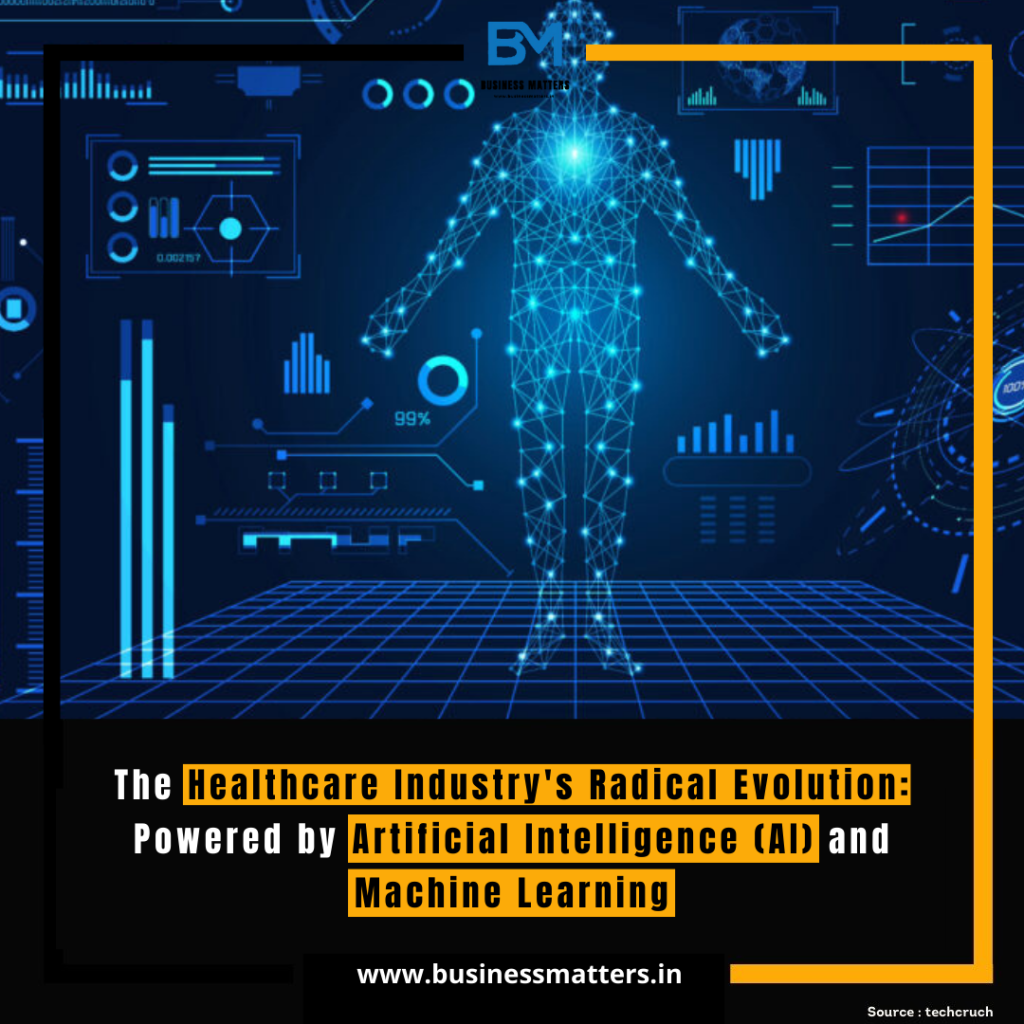The Healthcare Industry’s Radical Evolution: Powered by Artificial Intelligence (AI) and Machine Learning
The healthcare industry is undergoing a profound transformation, driven primarily by the integration of artificial intelligence (AI) and machine learning technologies. These advancements are reshaping the way healthcare professionals diagnose, treat, and manage patients, offering the promise of more accurate, efficient, and accessible healthcare. In this article, we will delve into the significant impact of AI and machine learning on the healthcare sector, highlighting the progress made, the challenges faced, and the potential pitfalls to be addressed.
The Promise of AI in Healthcare:
Artificial intelligence in healthcare holds tremendous promise. One of its most compelling aspects is its ability to analyze vast amounts of medical data with incredible speed and accuracy. This enables early disease detection, personalized treatment plans, and better patient outcomes. For instance, AI algorithms can examine medical images, such as X-rays and MRIs, to identify abnormalities that might be missed by human radiologists. In addition, AI can assist in identifying trends in patient data that may lead to more effective interventions and treatments.
AI-powered chatbots and virtual assistants are becoming more prevalent in healthcare settings. These virtual agents can provide patients with information, schedule appointments, and offer support for chronic disease management. They improve patient engagement and can even identify potential health issues by analyzing patient conversations and queries.
Furthermore, AI and machine learning are integral in genomics and drug discovery. They accelerate the identification of potential drug candidates and their interactions with specific diseases, paving the way for more efficient drug development and personalized medicine.
Progress in AI Implementation:
The progress in implementing AI and machine learning in healthcare is palpable. Medical imaging is a prime example of the successful integration of AI. AI algorithms can analyze images for various conditions, including cancer, retinopathy, and fractures, often with higher accuracy than human experts. This not only expedites diagnosis but also reduces the burden on healthcare professionals.
Machine learning has also been invaluable in predictive analytics. By analyzing electronic health records and patient data, AI models can predict disease risks and assist in preventive healthcare measures. These models help identify high-risk patients, enabling early interventions and reducing hospital admissions.
Moreover, the pharmaceutical industry has benefited from AI. Drug discovery processes that used to take years can now be significantly accelerated. AI models can screen large databases of chemical compounds, predicting their potential as drugs and streamlining the drug development pipeline.
Challenges and Pitfalls:
Despite the remarkable progress, AI in healthcare faces various challenges and pitfalls. One of the primary concerns is data privacy and security. Healthcare data is highly sensitive, and maintaining its integrity is crucial. There is a need for robust security measures to protect patient information from breaches and unauthorized access.
Another challenge is the potential for bias in AI algorithms. These algorithms are only as good as the data they are trained on, and if that data contains biases, the AI can perpetuate these biases. Healthcare professionals and AI developers must work together to ensure that AI systems are fair and equitable, providing accurate assessments for all patients.
Regulatory hurdles are also a concern. The approval and regulation of AI-powered medical devices and treatments are complex and may hinder the adoption of these technologies. Striking a balance between innovation and safety is essential.
Furthermore, the human-AI collaboration needs to be carefully managed. AI can enhance healthcare processes, but it should complement, not replace, the expertise of healthcare professionals. Ethical considerations and the potential for overreliance on AI should be addressed.
Conclusion:
The integration of AI and machine learning in the healthcare industry represents a monumental shift in the way healthcare is delivered and managed. The promise of improved accuracy, efficiency, and accessibility is compelling, and substantial progress has been made in various areas of healthcare, from diagnostics to drug discovery.
However, challenges and potential pitfalls exist, particularly in data security, bias, regulatory concerns, and the human-AI relationship. Addressing these issues is vital to ensure that AI continues to drive positive change in healthcare while upholding the highest standards of safety and ethics.
As AI and machine learning technologies continue to evolve, their role in healthcare will only expand. With the right balance of innovation, regulation, and ethical consideration, the healthcare industry’s transformation promises to be even more revolutionary in the years to come.


